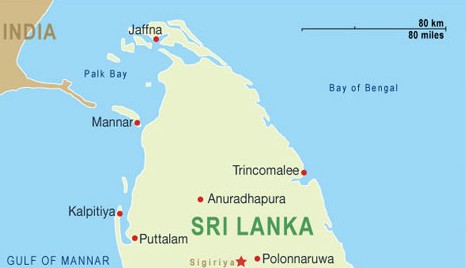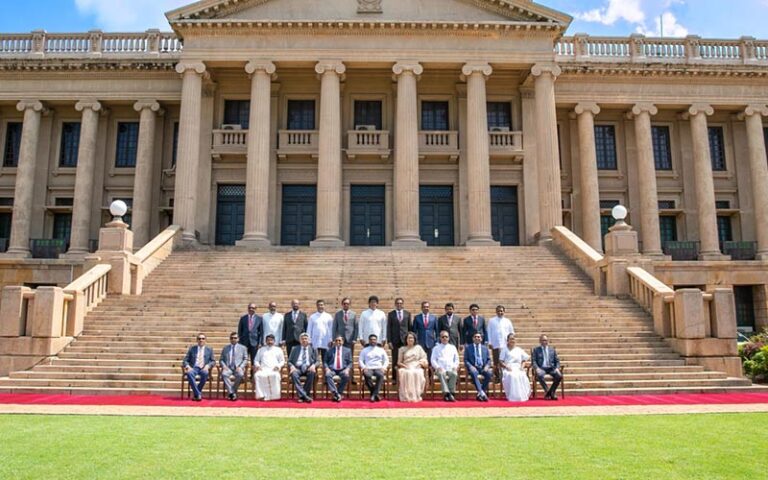 Having refused to negotiate with the US on the text of the forthcoming second US resolution targeting Sri Lanka before the United Nations Human Rights Council (UNHRC) in Geneva, the government is now faced with the possibility of asking for a vote on the resolution in spite of certain defeat.
Having refused to negotiate with the US on the text of the forthcoming second US resolution targeting Sri Lanka before the United Nations Human Rights Council (UNHRC) in Geneva, the government is now faced with the possibility of asking for a vote on the resolution in spite of certain defeat.
The UNHRC is divided into five regions, comprising 47 countries.
Well informed sources said that the failure to go for a vote meant the adoption of the US resolution without a division. That would be inimical to national interests, sources said, adding that even though the result was certain to be worse than the defeat last year, the government would have no option but to seek a vote.
As Sri Lanka is not among members of the UNHRC, it will have to request a friendly country to call for a vote. Russia, China and Cuba are no longer members of the UNHRC, though Pakistan remains a constituent.
The first US resolution, co-sponsored by 40 countries, was passed by 24 votes to 15 against with right abstentions on March 22, 2012. On the instructions from the government, Ambassador Ravinatha Aryasinha on Friday told the US Ambassador for Human Rights, Eileen Donahoe of Sri Lanka’s position.
Sources said that those pushing for international war crimes investigation would definitely welcome the passage of the resolution, without a vote. Some members of the UNHRC would want to avoid voting, sources said. India and Japan would be among the countries wanting to evade a vote on the second US resolution.
India voted against Sri Lanka at the first vote, whereas Japan wasn’t a member of the UNHRC at that time. However, Japan is now a member of the UNHRC grouped under Asian states comprising 13 countries (India, Indonesia, Japan, Kazakhstan, Malaysia, Maldives, Pakistan, the Philippines, Qatar, South Korea, Thailand and the United Arab Emirates).
Interestingly, President Mahinda Rajapaksa is on a four-day official visit to Japan ahead of the vote.
Sources pointed out that Japan took a sensible stand at the 19th sessions when the US moved its first resolution against Sri Lanka.
Minister Sakashita Osamu of the Japanese Permanent Mission in Geneva told the 19th session of the UNHRC: “No country has a perfect record on human rights, and countries need to be given time, space, encouragement, advice, and where appropriate, concrete assistance in order to overcome existing challenges. The political, socio-economic and cultural context of each country duly needs to be considered when addressing human rights issues.
“Too often, a false dichotomy is constructed between the universality of human rights per se and the particularity of specific human rights situations. Discussions, including those by this council, need to combine the two essential facets of human rights issues in a constructive manner.”
by Shamindra Ferdinando
Source: The Island (Sri Lanka)




